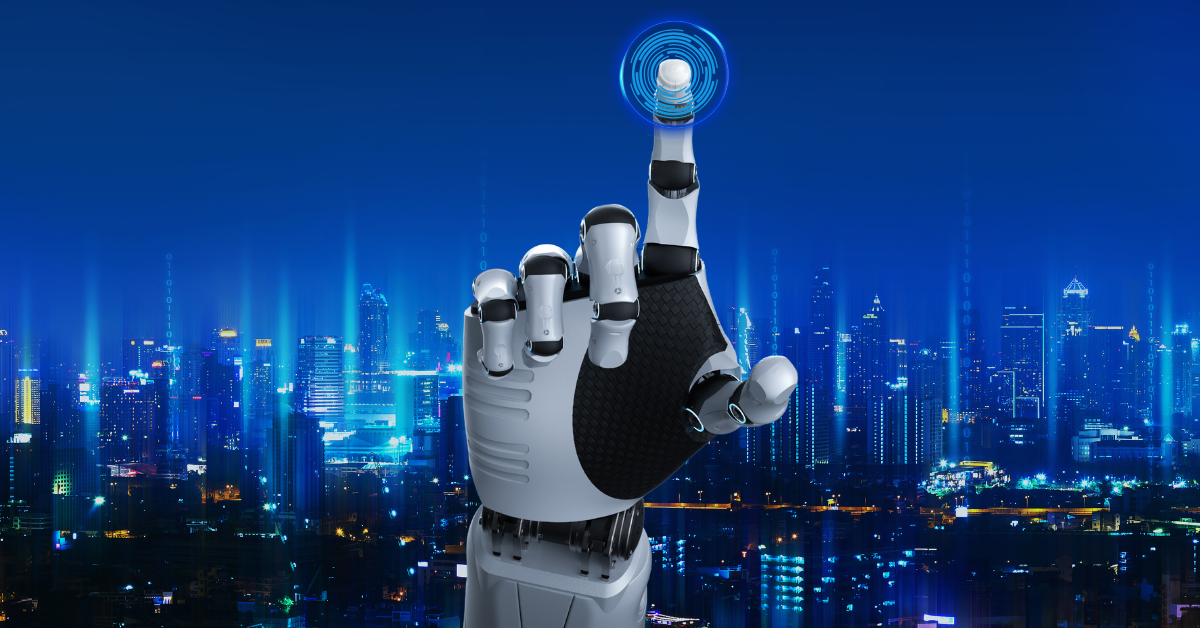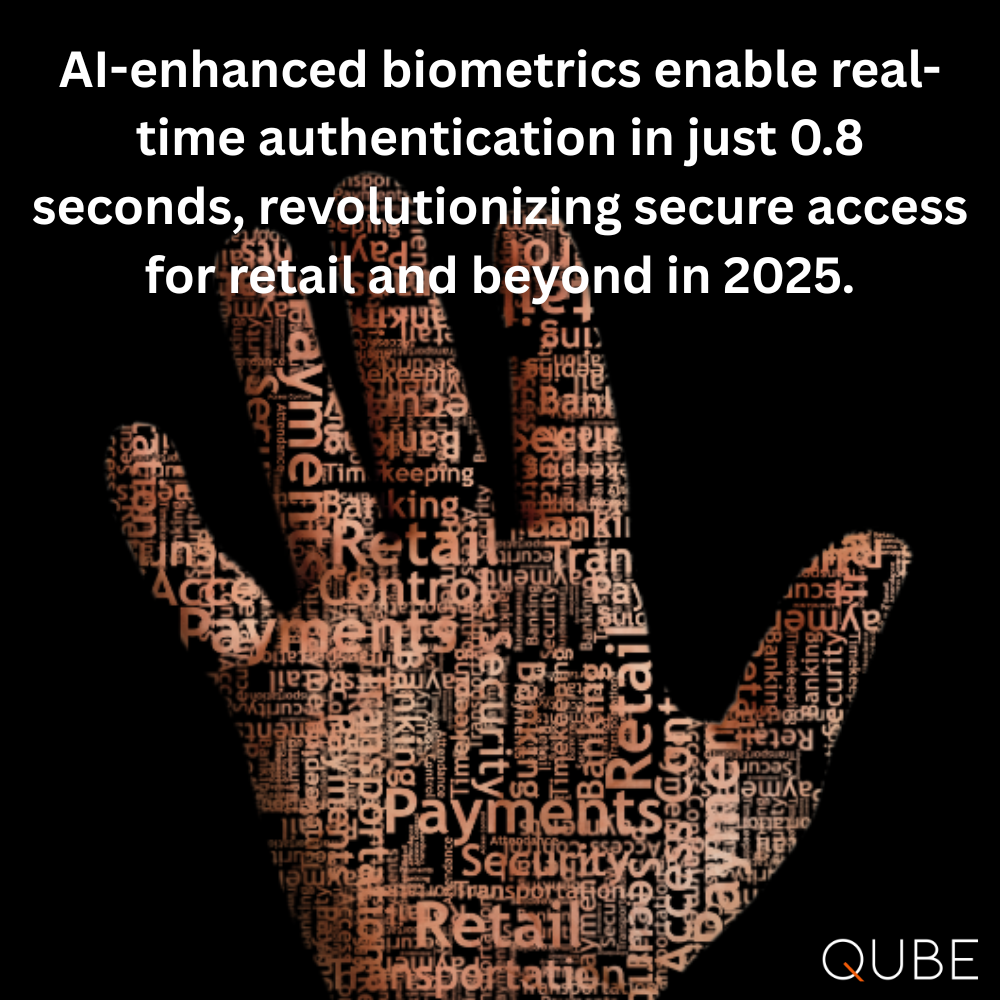Categories
In 2025, AI-Enhanced Biometrics are revolutionizing the field of identity verification by delivering unprecedented accuracy through advanced technical integration. AI’s ability to process and analyze biometric data—such as palm vein patterns, facial features, and fingerprints—has addressed longstanding challenges like environmental variability and fraud, making systems more reliable for industries worldwide.
At Qube Bio, We are leveraging AI to enhance our palm vein scanning technology, ensuring secure and precise solutions for global applications.
This article dives into the technical mechanisms of AI in biometrics, its core uses, benefits, ethical considerations, and future innovations, educating readers on how AI is reshaping authentication accuracy.

AI’s integration into biometric systems relies on advanced computational techniques that enhance accuracy and efficiency, transforming how authentication is performed. From feature extraction to real-time processing, AI leverages cutting-edge algorithms to ensure biometric systems are robust and reliable, even in challenging scenarios. Below, We explore the key technical mechanisms driving this innovation.
AI integrates with biometric systems through sophisticated machine learning models that excel at feature extraction. In palm vein scanning, for instance, AI algorithms analyze infrared-captured vein patterns to identify unique features, such as branching points and vein thickness, with a precision that traditional methods can’t match. These models are trained on vast datasets, enabling them to detect subtle differences that human-designed algorithms might miss, reducing false positives by up to 30% compared to non-AI systems.
Deep neural networks play a crucial role in biometric matching, a process where AI compares captured data against stored templates. For facial recognition, neural networks map facial landmarks—like the distance between eyes or jawline curvature—and assign weighted scores to ensure accurate matches, even with slight variations (e.g., changes in expression).
In Qube Bio’s palm vein systems, neural networks achieve a false acceptance rate of less than 0.0001%, ensuring that only authorized users are authenticated, even in high-volume settings.
AI enables real-time data processing, a game-changer for biometric systems in dynamic environments. By leveraging edge computing, AI processes biometric data directly on the device, minimizing latency and ensuring sub-second authentication.
For example, in a retail setting, a palm vein scanner powered by AI can authenticate a customer in 0.8 seconds, allowing for seamless transactions without compromising accuracy.

AI’s integration into biometrics has unlocked several technical applications that enhance accuracy and security:
For palm vein scanning, AI adjusts for temperature or humidity variations that might affect infrared readings, ensuring consistent performance with a 99.9% accuracy rate in controlled tests.
AI uses liveness detection to prevent fraud, such as analyzing blood flow in palm veins to confirm a live user, significantly improving security against spoofing attempts.
AI adapts to changes over time, like aging or minor injuries, by continuously updating user templates, ensuring long-term reliability for applications like employee access control.
AI combines multiple biometrics—such as palm vein and facial recognition—for higher accuracy, achieving a 99.99% match rate in dual-modal systems, ideal for high-security scenarios.
The technical advantages of AI-Enhanced Biometrics are profound, making them a cornerstone of modern authentication systems. One key benefit is the reduction in false rejection rates, which ensures legitimate users aren’t denied access. In testing, AI-driven systems have lowered false rejection rates to below 0.1%, compared to 2% in traditional systems, making them highly reliable for retail and public sector applications.
Another advantage is AI’s ability to optimize computational efficiency. By using techniques like model pruning, AI reduces the computational load, allowing biometric devices to process data faster while consuming less power. This is particularly beneficial for on-device processing, which cuts latency by 50% compared to cloud-based systems and enhances energy efficiency—a critical factor for scalable deployments in resource-limited regions.
Additionally, AI-Enhanced Biometrics improve scalability through parallel processing. AI algorithms can handle thousands of authentications per second, making them ideal for large-scale applications like national ID programs or global retail chains. For instance, a single AI-powered palm vein scanner can process 10,000 authentications per hour, supporting high-traffic environments without compromising accuracy.
While AI-Enhanced Biometrics offer significant technical benefits, they also raise important ethical and technical considerations that must be carefully managed to ensure responsible deployment. Beyond technical challenges like computational demands, ethical concerns around fairness, privacy, and transparency are critical to address, especially as biometric systems become more pervasive in daily life. Below, We outline four key ethical concerns and the measures being taken to mitigate them.
Algorithmic bias in AI biometric systems can lead to unequal performance across demographics, like varying accuracy for skin tones. AI mitigates this with diverse training datasets, reducing errors. At Qube Bio, We ensure our palm vein scanners achieve equitable performance across users.
Data privacy is a key concern, as biometric data like palm vein patterns is sensitive. We use end-to-end encryption and edge computing, processing data on-device. Our palm vein scanners store encrypted templates locally, minimizing exposure and protecting user privacy.
Transparency in AI model operations builds user trust, as many systems obscure their processes. We provide detailed documentation on our AI algorithms, ensuring users understand how their palm vein data is processed, fostering accountability in our systems.
Misuse of biometric data, like unauthorized surveillance, is a significant risk. We implement strict access controls and audit trails, ensuring palm vein data is used only for intended purposes, like secure payments, while advocating for global ethical guidelines.
The future of AI-Enhanced Biometrics promises even greater advancements, with AI poised to redefine authentication accuracy. One emerging innovation is the integration of behavioral biometrics, where AI analyzes patterns like hand movement during palm vein scans to add an extra layer of security. This could reduce fraud attempts by an additional 15%, as it verifies not just the biometric data but also the user’s unique behavior.
Another exciting development is zero-shot learning, where AI systems authenticate new users without prior training data. This could revolutionize applications like disaster response, allowing rapid identity verification in emergencies. For instance, a zero-shot AI biometric system could authenticate 1,000 displaced individuals per hour, ensuring efficient aid distribution.
At Qube Bio, We are working to integrate AI further into our palm vein scanning technology, aiming for sub-second authentication speeds with near-perfect accuracy. By 2026, we plan to achieve authentication times of 0.5 seconds while maintaining a 99.999% accuracy rate, setting a new benchmark for secure, contactless authentication in high-stakes applications like banking and healthcare.
In 2025, AI-Enhanced Biometrics are setting a new standard for accuracy, driven by technical innovations like machine learning, neural networks, and real-time processing. From reducing errors in palm vein scanning to enabling cross-modal fusion, AI is transforming how biometric systems operate, offering unparalleled reliability for industries worldwide. At Qube Bio, We are proud to lead this charge, enhancing our palm vein scanning technology with AI to deliver secure, precise solutions for global markets. As AI-Enhanced Biometrics continue to evolve, readers are encouraged to explore their technical potential, whether in retail, healthcare, or beyond, as AI redefines the future of authentication accuracy.